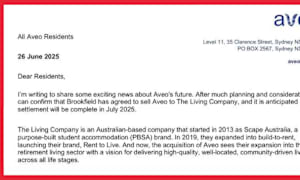Aged care facilities that employ their own GPs and physiotherapists typically provide better clinical care to their residents – and there is potential to build a dedicated medical workforce within residential care, according to Dr Clare Skinner (pictured above), the Director of Emergency Medicine at Sydney’s Hornsby Ku-ring-gai Hospital, which developed the Geriatric Rapid Acute Care Evaluation (GRACE), an aged care in-reach program to reduce hospital admissions.
For just under 40 minutes, Dr Skinner – who is also the Chair of the Emergency Medicine Network for the North Sydney Local Health District – argued that larger facilities have the economies of scale that allow them to offer some clinical services and for their medical staff to actually build relationships with residents (an issue highlighted by the previous witness).
“I think the model where you expect to see the service general practitioner running a busy private practice to go in and see an aged care resident is unrealistic,” she told Counsel Assisting Brooke Hutchins. “So, we need to start thinking about how we run medical workforce into aged care facilities quite differently. There’s some scope for telemedicine but also scope to have a specialist workforce that literally works in aged care, trains in aged care, is proud to work in aged care and has skills there.”
Dr Skinner also supported eliminating the current fee for service model for GPs and moving to an in-house payment model.
“I think potentially it should work always more like hospitals where people are actually contracted to provide service,” she stated. “With complex patient it’s about longitudinal relationships, it’s not about one-off events.”
The Director also advocated for all Australians – not just aged care residents – to have a comprehensive health summary compiled by a GP or nurse, saying much of the information they receive with aged care residents is “photocopies of photocopies” and lacking in detail.
However, Dr Skinner stopped short of endorsing Counsel Assisting’s proposition to mandate a requirement for facilities to have software that is interoperable with health record systems such as My Health Record, saying it is too early to rely on that system.
“I think electronic records are really good,” she said, “but a lot of the software we do use is clunky and difficult to use. So, I'm hoping for advances in that soon.”
The doctor also pointed to difficulties in implementing the Counsel Assisting’s idea for a requirement for aged care residents to only be discharged from hospital once a summary has been provided and acknowledged to their facilities, saying the technology isn’t currently available to make this mandatory.
“In the health sector generally we’re still relying on fax machines and a lot of facilities and general practices now no longer have a fax machine,” she conceded. “There’s a major project here that would benefit all patients around our technology.”
As always, the issues seemed to come back to staffing in aged care.
“If we’re going to do this live, we need to have enough staff armed where they can do it live,” Dr Skinner added. “It can’t be something where the night shift is too busy to receive a patient back from the hospital.”
Dr Skinner estimates around 65% of the residents she currently sees in her emergency department could have received care in their facility.
“I think you need higher levels of clinical – senior clinical staff who can make decisions and you need relationships because medicine is all about relationships,” she concluded. “It’s about trust, it’s about deep knowledge of the patient and you need – I honestly think you prescribe a lot of that which is you need good record keeping system, you need good relationships, good care coordination, it needs to be proactive, well documents and it needs to be pragmatic and sensible and take the person in context ..... into account.”
No disagreement from the Commissioners.









